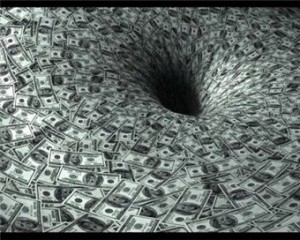
The oil industry has always been the driving force in Putin’s economic policy. It was expected to save the country from economic degradation. The creation of an “energy superpower” is an ambitious yet unsophisticated development concept that Putin and his close circle chose for the country a while ago. The authorities’ only task was supposed to consist in distributing oil revenues from rising energy prices. However, instead of rising, prices plummeted. Now that oil companies have no more money and enormous debts, it is them that need saving.
Oil businessmen are panicking. Lukoil President Vagit Alekperov says that “oil businessmen have no money left”. Rosneft’s debt to be paid this year reaches $14 billion. Its market capitalization, however, fell to $29 billion. Just for comparison, in 2006, Rosneft’s market capitalization after IPO reached $79.8 billion; and after the purchase of TNK-BP in 2013 for $56 billion, its market cap went up to $96 billion. After a long-term agreement between China’s CNPC and Rosneft for supplying 365 million tonnes of oil to China over the next 25 years had been signed in 2013, it was assumed that Rosneft would use CNPC’s money to pay off its debts. However, according to Sberbank CIB, as of the beginning of 2016, Rosneft has probably already exhausted its entitlement to advance payments from CNPC that were capped at 30 percent of the contract value and amounted to $35 billion. Due to a drop in world energy prices, Rosneft is now supposed to supply to CNPC almost half of the oil specified by the agreement just to cover the already accumulated debt.
To make the matters worse, Putin’s oil businessmen do not know how to economize. They have been living for years with a hard-to-break habit of spending money without stint. In this context, it is no surprise that the anti-crisis plan prepared by the government does not include a proposal to reduce top executive salaries at state-controlled companies. Oil companies do not intend to cut expenses on their employees. All companies except for Rosneft are planning to index salaries and compensations in the current year. Rosneft sort of decided to economize by paying all the usual bonuses to the management, although without raising salaries.
As for the government, it is frantically looking for additional revenue sources to fill gaps in the federal budget. Economic Development Minister Alexei Ulyukayev suggested privatizing a “small piece” of Rosneft or, more specifically, selling off a 19.5 percent stake in the company, while Ministry of Finance and Deputy Prime Minister Arkady Dvorkovich wishes Rosneft to pay out additional dividends to patch up holes in the federal budget. In response, Rosneft’s representative cautiously called the government’s intentions “slightly strange”. It is clear that Rosneft CEO Igor Sechin uses all his influence in the Kremlin to prevent implementation of the proposals to pluck his oil giant.
Left without the usual profit margin, oil businessmen demand that the government leave them alone. Only yesterday, they positioned themselves as a national patrimony, thanks to which doctors and teachers got paid and pensioners received their pensions. Rosneft fought with Gazprom for the right to be called the country’s largest taxpayer. Now, however, oil companies demand that the government should not raise their tax burden but leave them alone. They are in no mood for demonstrating their commitment to social responsibility.

With a production cost of $10 to $15 per barrel and world oil prices reaching $100 per barrel, Russia’s profit margin was sizeable enough for all those “feeding off the oil pipe,” that is for both oligarchs and the country’s population tamed by them. Today, nobody would dare to predict when world oil prices will again reach high levels. This is why both the Russian state that is sitting on the oil needle and oil businessmen will have to economize. Oil producers have no money for the development of new oil fields. The methods used to exploit the old ones are mostly barbarous. As a result, large volumes of easily accessible oil are extracted. The rest of the oil — whose extraction demands some effort – will remain untouched till better days in some distant future. This was the way to do it in the USSR, and it is now being adopted by Putin’s “most effective” managers with the world’s most competitive wages. It is Russia that will pay for Putin’s strategic mistakes. Everything valuable has been given away to people like Rosneft’s Sechin, and their survival justifies any means.





